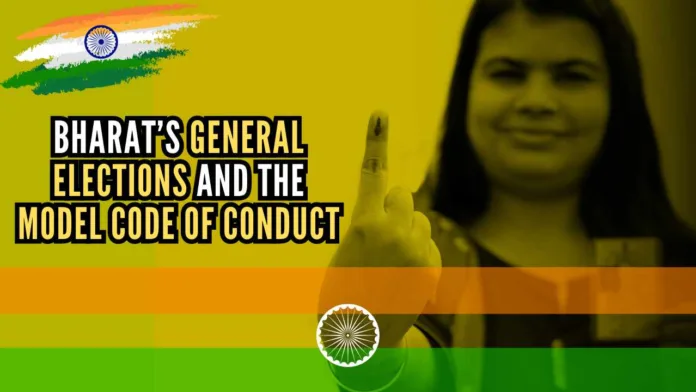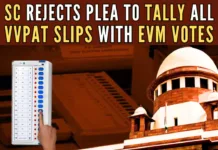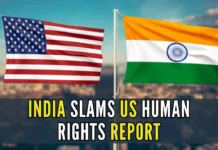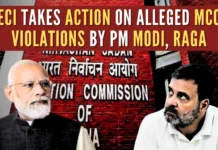
Bharat to go into election mode
Bharat, that is India, goes to polls between April 19-June 1 as announced by the Chief Election Commissioner (CEC) last week. Bharat’s elections constitute a colossal and complex undertaking because of the sheer size of an eligible number of voters. According to the CEC, the preparations for the 2024 general elections were underway for nearly two years to insure a free and fair election. The polling is scheduled in seven different phases with the vote count to begin on June 4 and declaration of elected candidates soon thereafter. During this entire period, from the declaration of polling dates to the election results, Bharat is under strict watch what is known as the Model Code of Conduct (MCC), a set of guidelines agreed upon by all political parties.
It is no small feat for the CEC to plan for and manage the electoral process while keeping a strict watch on the conduct of political parties and candidates. The CEC assured the nation that the Commission is very serious about combatting the four Ms; muscle power, money misuse, misinformation, and MCC violations. The EC’s goal is zero tolerance for any of the Ms for which the local administration is empowered to deal with swiftly. The CEC said, “Failure is not an option,” in upholding the beacon of electoral democracy of Bharat.
We first review the sheer numbers at a glance which must boggle anyone’s imagination but that of the EC and its proactive machinery across Bharat.
Registered voters: Nearly 978 Mn (497 M male and 471 female); about 8.8 Mn with disabilities; over 8 Mn more than 80 years of age, and 48,000 transgenders,
First-time voters in 2024: Over 18 Mn including about 8.5 Mn women.
Demographic Dividend of “young” Bharat: Nearly 215 Mn voters (age 18-29)
Logistics: Over 1 Mn polling booths; nearly 150 Mn polling officials; 5.5 Mn Electronic Voting Machines; over 400,000 vehicles
Estimated expenditure: About $14.4 Bn by all candidates/ political parties (as much as it was in the U.S. Presidential and Congressional elections in 2020).
The Election Commission (EC) is effectively in command and control to oversee and ensure the full and fair elections in the world’s largest democracy. The nation under MCC prohibits any announcement of new policies and investments, inaugural infrastructure projects, and transfer of government officials without explicit approval by the EC. It regulates the conduct of political parties to ensure no undue advantage to the ruling party and/ or incumbent candidates while maintaining effective law and order and democracy.
The enforcement of MCC is a set of common guidelines to ensure a plain playing field during the campaign and on the polling day. Having lived overseas for decades, I am pleased that the MCC will lead to significant improvements in the election campaign process. It is truly meant to avert practices deemed corrupt and/ or unlawful, no speeches that can cause communal tensions and/ or are deemed hateful, no poll-related demonstrations and/ or public gatherings without permission by the competent authorities, no campaign posters in public places, etc. In yesteryears, there was little semblance during the electioneering.
As I visited dozens of rural schools, the designated polling booths for eligible voters in the village, I know firsthand that the government schoolteachers constitute one of the largest workforces deployed on polling days. They are being trained and the school campuses are getting ready to have functioning basic amenities including access for people with disabilities. In talking with a veteran teacher who underwent the training yesterday, he said that there are improvements in the EVMs and the training was quite exhaustive. However, the EVMs have already come under heavy criticism by the opposition parties. There will be another training session closer to the actual date of polling about managing the polling booths and their respective duties and responsibilities.
The polling officers and associated staff won’t know about their actual location until the day before the polling. I recall observing in the 2019 General elections that a large number of teachers were lined up for pleading to let them off the election duty but none was excused during the 40 minutes I was observing. Later, the official remarked that the excuses are rare; if they become lax, there will be a severe shortage of workforce to manage and oversee the colossal undertaking of polling in every village. The government provides transportation for all polling staff to get to their destination, safety during their stay, and safe travel back to the designated election headquarters.
MCC already has flying squads with the authority to search vehicles for a significant amount of unaccountable cash or any other freebies. I was struck when my car was stopped twice on rural highways during my travel to schools in rural areas on behalf of a nonprofit, Vidya Gyan. They searched the trunk and my backpack. At first, it seemed insulting but the truth is that large sums of cash, freebies, alcohol, and other inducements are commonly transported by the candidates for distribution to win votes. Essentially, the MCC includes a set of dos and don’ts in an effort to maintain free and fair elections.
It is interesting to note that every polling location gets to observe a strict 48-hour “silence period,” before the voting date in which all political campaigning is banned. Also, the print and television media is prohibited from giving any campaign-related coverage before and during that election. In this age of widespread social media, however, it is quite challenging to manage the “fake” messaging on platforms such as Twitter, YouTube, WhatsApp, and Facebook. It will be worth observing who and how will the Social media outlets be managed.
Under the MCC, there will be EC-appointed observers and flying squads to watch the polling booths, adequate measures for the free and fair steps to cast votes, safe transportation, and secure holding of the ballot boxes until the day of counting. EC will also manage the deployment and movement of security personnel for secure polling across the country. This in itself is a monumental task during the seven phases of elections considering the vast geography of Bharat.
As the most populated Bharat goes to General elections at a mammoth scale, the world will be watching how its dynamic democracy and development continue uninterruptedly.
Note:
1. Text in Blue points to additional data on the topic.
2. The views expressed here are those of the author and do not necessarily represent or reflect the views of PGurus.
For all the latest updates, download PGurus App.
- Education and election in Bharat: Race to the top - April 16, 2024
- Kejriwal: “An Insignificant Man” or a corrupt politician with impending prison term - March 24, 2024
- Bharat’s general elections and the Model Code of Conduct - March 22, 2024










